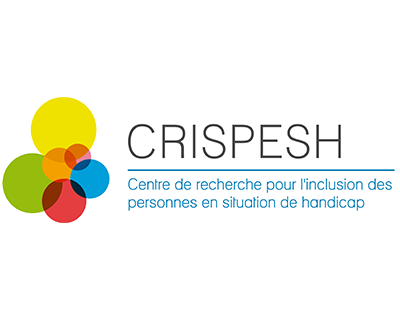Making the world more inclusive
Conducting applied research to improve the lives of people living in a disabling situation has been the work of CRISPESH for almost 10 years.
CRISPESH is the name of a CCTT (College Centre for the Transfer of Technologies) at Dawson College in partnership with the Cégep du Vieux Montréal that is unique in Quebec. CCTTs are the applied research centres of Quebec CEGEPs and colleges. CRISPESH is the only CCTT focused on making the world more accessible.
“In a perfect world, we would include everyone in everything,” said Roch Ducharme, Director General of CRISPESH. “We work to lower the barriers and fill the gaps between individuals and their environments. Our mission is to contribute to the inclusion of people living with a disabling situation in Quebec society by developing and promoting social innovation practices and accompanying organizations in their steps to become more inclusive.”
Integration or inclusion
In an interview with Dawson Communications, Roch explained the difference between integration and inclusion models. Integration means to incorporate individuals of different groups into society or an organization. Inclusion means that a person living in a disabling situation or a member of a different group has the same rights, access and choices as everyone else in a community.
The term “people living in a disabling situation” is a term that originated in Quebec. Roch prefers this term because it makes the challenge about the environment and not about the person. “People who wear glasses are able to do their work and drive their cars. If you remove their glasses, they are people living in a disabling situation,” Roch said.
“Quebec is seen as fertile ground for social innovation,” according to Roch, and CRISPESH is working with partners in Canada and also in Belgium and France.
Projects in Indigenous communities
CRISPESH has various projects on the go, including three grants to build awareness and supports for people living in disabling situations in Indigenous communities across Quebec.
“There are currently very few studies on disability in First Nations communities,” said Shannahn McInnis, a researcher with CRISPESH. “Stats indicate an intersection of barriers are faced by many living in disabling situations in the communities.”
In partnership with First Nations Human Resources Development Commission of Quebec, Shannahn is working to share knowledge on social and professional inclusion through an Indigenous framework, highlighting the resilience and strength of the First Nations people with disabilities who participated in the research.
The projects will create content for an awareness campaign and develop an indigenized training website. This site will host original educational videos, training modules and guides to support professionals and employers in the communities. This website will illuminate content using featured video footage from the communities.
Other projects
Other CRISPESH projects include measuring the level of anxiety among students in relation to using technology in the learning environment. The result of this research will be shared in 2022 with the hope of creating calmer conditions for students in CEGEPs across Quebec.
A project with a Belgian partner is focused on improving the internship experience for people living in a disabling situation.
All these projects are made possible by a small team of five staff members and with about half a dozen teachers, who are given release time to work on research projects.
In the fall, there will be a celebration of CRISPESH’s 10th anniversary and the Indigenous projects will be completed.
For more information, see the CRISPESH website: https://crispesh.com/index



